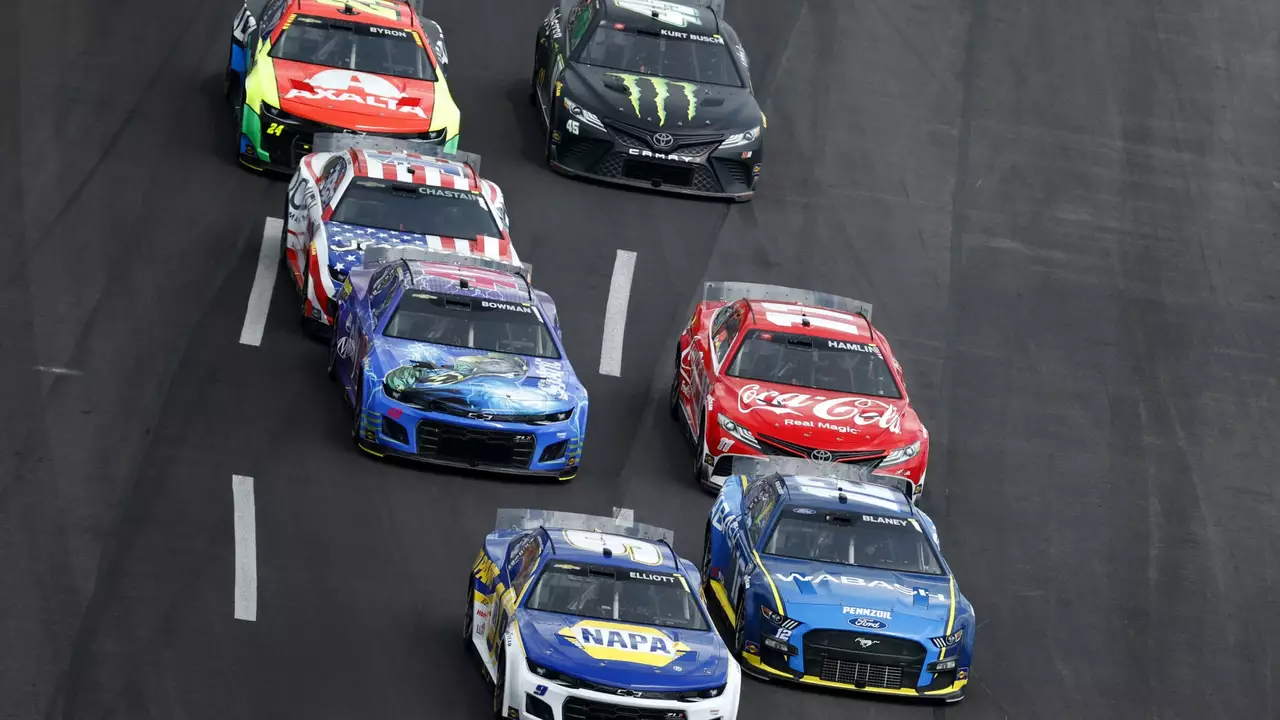How is NASCAR racing different from F1 racing?

Understanding the Basics: NASCAR vs F1
As an ardent racing aficionado, I am often asked about the difference between NASCAR and F1 racing, two of the most popular motorsports in the world. While both have their roots in competitive auto racing, they are vastly different in many respects. Some of the key differences that immediately come to mind are the types of cars used, the tracks they race on, and the rules that govern each race. Let's break down these differences in more detail.
A Look at the Cars: Stock vs Open-Wheel
In NASCAR (National Association for Stock Car Auto Racing), the name says it all – the cars are based on production models or 'stock' cars. These cars are heavily modified for safety and performance, but they still retain the basic shape of a production car. On the other hand, F1 (Formula One) uses uniquely designed open-wheel cars. These are single-seater cars with wheels outside the car's main body. The design philosophy behind these two types of vehicles is as different as night and day, resulting in a distinct driving experience and racing style for the drivers.
The Nature of the Tracks: Oval vs Circuit
The tracks on which NASCAR and F1 races are held are another key differentiator. NASCAR races primarily take place on oval tracks, which lead to a lot of high-speed, wheel-to-wheel racing. In contrast, F1 tracks are circuit tracks, with a mix of straights, tight corners, and wide curves. This variety in track design tests the skill and adaptability of the drivers and their cars to a greater extent.
Rules of the Game: Laps vs Time
The way races are won is another significant difference between NASCAR and F1. NASCAR races are about completing a set number of laps. The first driver to complete these laps is the winner. F1 races, however, are time-based. The goal is to cover as much distance as possible in a set amount of time. These contrasting rules make for different strategies and tactics employed by the teams and drivers.
Driver Safety: The HANS Device vs The Halo
Safety in both sports is paramount, but the devices used are quite different. NASCAR uses the HANS (Head and Neck Support) device, which is a U-shaped device placed around the driver's neck and attached to the helmet. This prevents the head from whipping forward and backward in the event of an accident. In F1, a device known as 'The Halo' is used. This is a titanium structure that sits above the driver's head and protects them from flying debris.
Team Dynamics: Single Car vs Multi-Car Teams
In NASCAR, each team typically fields a single car in each race. This means the team's entire focus is on that one car and driver. In F1, teams usually have two cars on the grid for each race. This adds an additional layer of strategy as teams must balance their resources and tactics between two drivers.
Cultural Impact: American Spirit vs Global Appeal
NASCAR is steeped in American culture and history, with its roots tracing back to the prohibition era. The sport is most popular in the United States and has a distinctly American flavor. F1, on the other hand, has a more global appeal. Races are held all around the world, and the drivers, teams, and fans come from a variety of different countries, making it a truly international sport.
The Fan Experience: Accessibility vs Exclusivity
Finally, the fan experience in NASCAR and F1 is very different. NASCAR races are known for their accessibility. Fans can often meet drivers, get autographs, and even walk on the track before a race. F1 is often seen as more exclusive, with a focus on luxury and glamour. While it may be harder for fans to get close to the action in F1, the global nature of the sport and the high-tech cars can make for a unique and exciting fan experience.
So there you have it, a breakdown of how NASCAR and F1 racing differ. Whether you're a fan of the high-speed, wheel-to-wheel action of NASCAR, or the strategic, international competition of F1, there's no denying that both sports offer thrilling and unique experiences for motorsport fans.